Marking the birth of the Republic of South Sudan, some northerners say goodbye, and welcome. Video conceived and compiled by Mo Elzubeir. It’s kind of a tearjerker.
Revolution on the Nile
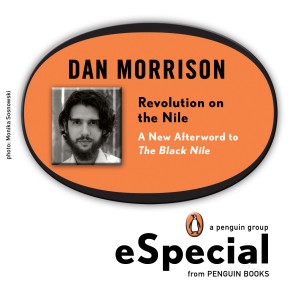 In just eight days a new country, the Republic of South Sudan, will be born. It’s a huge step – but not the last step – in a 55-years-and-counting struggle for dignity and self-determination.
In just eight days a new country, the Republic of South Sudan, will be born. It’s a huge step – but not the last step – in a 55-years-and-counting struggle for dignity and self-determination.
The south’s departure from Sudan has been as troubled as its union, with the recent fighting in Southern Kordofan and Abyei, as well as continuing insurgencies by southern renegades including George Athor and Peter Gadet. The Lord’s Resistance Army, too, remains active in the western part of the new country.
These are only the most obvious and immediate challenges faced by the southern people. Southern Sudan’s leaders, its people, and its nascent institutions will have to struggle mightily to prevent their new state from resembling the old Sudan in its approach to human rights, inclusivity, opportunity, and rule of law.
None of this should take away from the gigantic achievement that southern Independence represents. Millions died and millions more were made homeless, and endured famine, captivity and fear to get to July 9: A delicious and hugely challenging Year One. Democracy entails the right of the people and their representatives to make mistakes, to take responsibility for those errors (to “own” them, in the current parlance) and make corrections. It won’t be at all easy. But it’s a great, historic moment.
On July 5, Penguin Books will publish Revolution on the Nile, my new Afterword to The Black Nile, as an “e-special” available on the Kindle, the Nook, and Apple’s iPad, iPhone, and iTouch, as well as other e-readers. Revolution on the Nile updates The Black Nile with an account of south Sudan’s January freedom referendum, squashed attempts at public protest in northern Sudan, and the electrifying revolt against Hosni Mubarak in Egypt.
Sudan Cracks Up
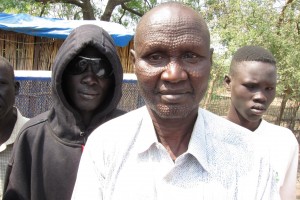 My four-day series on the coming breakup of Sudan in Slate magazine has received good notices from the likes of The Village Voice, The Browser, Bobby Ghosh of Time magazine, Microkhan, and the Wandering Savage.
My four-day series on the coming breakup of Sudan in Slate magazine has received good notices from the likes of The Village Voice, The Browser, Bobby Ghosh of Time magazine, Microkhan, and the Wandering Savage.
In case you missed the tasty 7,500-word opus, here’s a recap:
Part 1: Meet the Bernie Madoff of Sudan
Part 2: Fighting for Freedom in the New Sudan
Part 3: South Sudan: A Million Mutinies Now?
Part 4: South Sudan’s Oil Curse
Since the series began running, the insurgent militia leader Lt. General George Athor, who I quote in Part 3 of the series, has continued his private war in Jonglei state at the cost of some 300 lives. I’m posting, after the jump, notes from my January interview with Athor. I’ll reserve comment except to say the statements of this former golden boy of the Sudan People’s Liberation Army are extremely self-serving.
That’s all for now. I’m off to write a new chapter of The Black Nile to be included in the book’s upcoming Penguin paperback edition. So much has changed on the Nile this year, and so much of if for the better, that I felt the book needed an update.
Meet the Bernie Madoff of Sudan
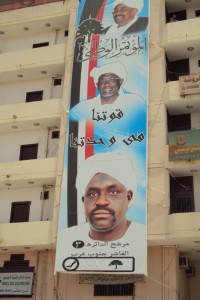 There’s an old saying in Darfur that goes: Kalash au bilash; Kalash begim al kash.
There’s an old saying in Darfur that goes: Kalash au bilash; Kalash begim al kash.
Translation: “You’re trash without a Kalashnikov; get some cash with a Kalashnikov.”
My newest story at Slate.com is about a Darfur police corporal who stole millions without ever flashing a gun.
I hope you enjoy the story of Adam Ismael, his $180 million Ponzi scheme, and Omar al-Bashir’s economic war on Darfur. It’s the first installment in a four-day series on the coming breakup of Sudan. (And here’s a piece I wrote from Sudan in January during the south’s historic independence vote.)
Gratified in Gotham
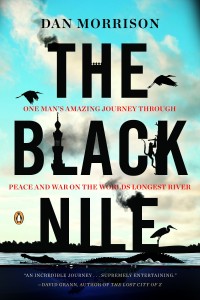 I’m very pleased that The Black Nile has been named one of the Village Voice’s Best Books of 2010, joining the likes of Patti Smith, Milan Kundera, Jennifer Egan, and The Anthology of Rap. This comes on the heels of a swell December 5 write-up by Joshua Hammer in The New York Times Sunday Book Review.
I’m very pleased that The Black Nile has been named one of the Village Voice’s Best Books of 2010, joining the likes of Patti Smith, Milan Kundera, Jennifer Egan, and The Anthology of Rap. This comes on the heels of a swell December 5 write-up by Joshua Hammer in The New York Times Sunday Book Review.
Visa officials permitting, I’ll be back in Sudan next month, covering the January 9 referendum for an obscure online journal.
Until then, Happy Holidays. (That’s The Black Nile‘s paperback cover image, by the way.)
Sudan: A Legend Predicts the Fall
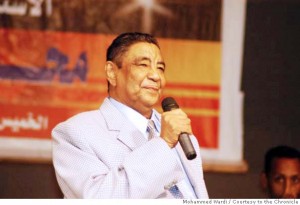 Mohammed Wardi, the legendary Sudanese crooner, has joined the pessimistic chorus predicting a weak and battered Sudan after next month’s southern secession vote.
Mohammed Wardi, the legendary Sudanese crooner, has joined the pessimistic chorus predicting a weak and battered Sudan after next month’s southern secession vote.
In a recent interview with the Al Ahdath newspaper in Khartoum, translated by the Sudan Votes website, Wardi says “the current unity [of Sudan] is nothing but a lie and it is not attractive.”
Do you mean that we are living on borrowed time?
We do not even have borrowed time. I am really worried about what will come later. Oil and borders are not the only issues to worry about; there is also the future of Darfur, the East and the North. Eventually, Sudan will turn into dub-districts.
As I recounted in this 2007 article, Wardi is beloved in Sudan and across the Sahel region for incorporating diverse melodies and rhythms into his songs. He’s been imprisoned and exiled for his stands against Sudan’s various dictators, and he was by far the most prominent northern member of Sudan People’s Liberation Movement. (A more evocative account of my meeting with Wardi — complete with a pair of caged fauns and a fast-flowing bottle of Chivas — can be found in Chapter Nine of The Black Nile.)
Lonely Planet Gives ‘The Black Nile’ 4.5 Stars
 Travel guide author Steve Waters, writing at the Lonely Planet website, has this to say:
Travel guide author Steve Waters, writing at the Lonely Planet website, has this to say:
The Black Nile offers a fascinating and harrowing look at a country that continually makes headlines for all the wrong reasons. Morrison does his best to explain the historical events, tribal intricacies, external pressures and internal tensions that haunt Sudan today. Ok, not every traveller can flash their press card and jump a UN chopper, but then they normally wouldn’t end up under the bed sheltering from a firefight between local militias either. Morrison’s trip through Sudan becomes a quest for understanding; an attempt to unearth the truth behind his experiences as he interviews rebel leaders and local headmen, academics and taxi drivers, archaeologists and tour guides, all the time cadging his way a little further downstream.
The Black Nile reviewed in the Wall Street Journal
 Please check out this great review by Hugh Pope in the weekend Wall Street Journal. Here’s the kicker:
Please check out this great review by Hugh Pope in the weekend Wall Street Journal. Here’s the kicker:
Above all, Mr. Morrison’s peppery anecdotes, his refreshing honesty and his ability to show how Africans view their difficulties save “The Black Nile” from being simply a memoir of an author’s self-prescribed endurance test. Instead, the book gives us a compelling portrait of life along the Nile—from lonely fishing communities on Lake Victoria to the cacophonous collisions of Cairo. Mr. Morrison’s more discouraging encounters also quietly pay tribute to triumphs of the human spirit. Mr. Bryan, the author’s companion and verbal sparring partner for the first third of the account, later writes to him: “It’s good to be desperate once in a while. Gives you an appreciation of the looks on people’s faces when they’re desperate and you’re not.”
Egypt’s Battle to Control the Nile Waters
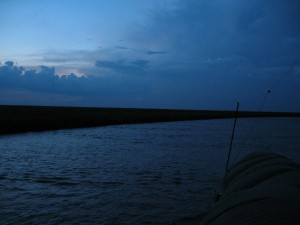 My newest piece, on the struggle for control of the Nile. Here’s the lead:
My newest piece, on the struggle for control of the Nile. Here’s the lead:
I was standing inside a colonial-era circuit house in a sprawling, malarial city called Malakal in southern Sudan. I had come to see a man about a river, but the man, an Egyptian hydrologist, wasn’t talking.
“It is forbidden,” he said solemnly, “to speak of the Nile.”
I pointed towards the window. “But it’s right there,” I said. This was, after all, a measuring station of the Egyptian water ministry, one of several it maintained in Sudan and Uganda to track the volume of the world’s longest river.
The hydrologist didn’t need to look out the window. He knew where the Nile was–he’d devoted his life to its study. But there was nothing he could say to a stranger about something so important to his nation’s survival. I might have had better luck inquiring about Tehran’s nuclear program.
You can read the whole article here, and check out other great writing on the environment at the NatGeo News Watch blog.
The Black Nile “highly recommended” by Library Journal
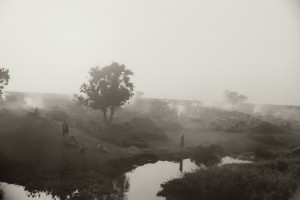 “Morrison’s narrative combines reporting and travelog in a way that brings readers to this most unlikely destination, a place of complexity, tension, struggle, and pain, where shreds of tradition and community are still visible.
“Morrison’s narrative combines reporting and travelog in a way that brings readers to this most unlikely destination, a place of complexity, tension, struggle, and pain, where shreds of tradition and community are still visible.
“Verdict: Morrison’s account transcends the travel genre to provide authentic and timely information on a complicated part of the world. Highly recommended.”—Melissa Stearns, Library Journal
